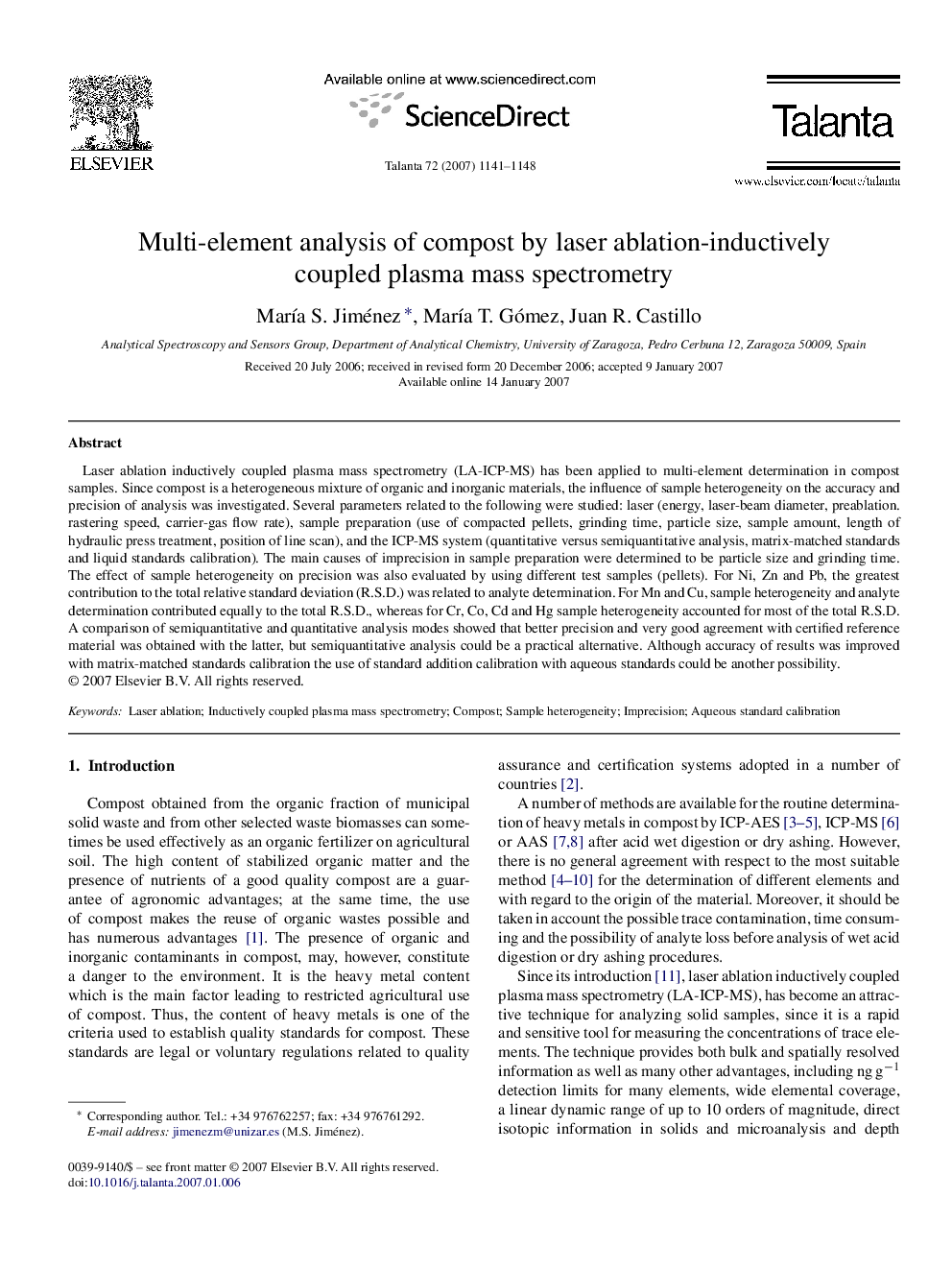| Article ID | Journal | Published Year | Pages | File Type |
|---|---|---|---|---|
| 1245012 | Talanta | 2007 | 8 Pages |
Laser ablation inductively coupled plasma mass spectrometry (LA-ICP-MS) has been applied to multi-element determination in compost samples. Since compost is a heterogeneous mixture of organic and inorganic materials, the influence of sample heterogeneity on the accuracy and precision of analysis was investigated. Several parameters related to the following were studied: laser (energy, laser-beam diameter, preablation. rastering speed, carrier-gas flow rate), sample preparation (use of compacted pellets, grinding time, particle size, sample amount, length of hydraulic press treatment, position of line scan), and the ICP-MS system (quantitative versus semiquantitative analysis, matrix-matched standards and liquid standards calibration). The main causes of imprecision in sample preparation were determined to be particle size and grinding time. The effect of sample heterogeneity on precision was also evaluated by using different test samples (pellets). For Ni, Zn and Pb, the greatest contribution to the total relative standard deviation (R.S.D.) was related to analyte determination. For Mn and Cu, sample heterogeneity and analyte determination contributed equally to the total R.S.D., whereas for Cr, Co, Cd and Hg sample heterogeneity accounted for most of the total R.S.D. A comparison of semiquantitative and quantitative analysis modes showed that better precision and very good agreement with certified reference material was obtained with the latter, but semiquantitative analysis could be a practical alternative. Although accuracy of results was improved with matrix-matched standards calibration the use of standard addition calibration with aqueous standards could be another possibility.
